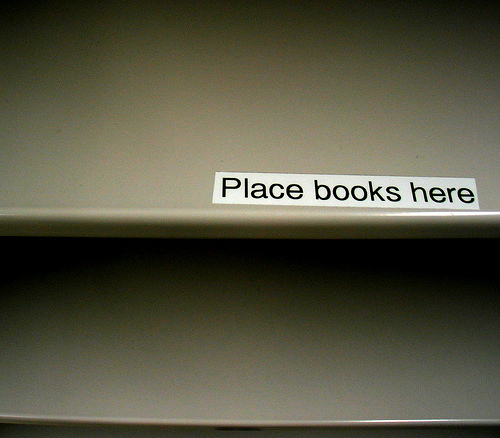Imagine a library where people are the books. Where reading a book takes the form of a dynamic conversation about an aspect of the author’s lived experience. For a short time, the Winnipeg Public Library will be transformed into a living library. Paper books will take the form of human books as this innovative concept designed to address prejudice takes shape.
The Human Library Project will take place over a span of four days, where readers can borrow a human book for up to a half hour of conversation in the library about the book’s specific topic. Each book has its own title and the author is an expert on that topic based on their life experiences. Anyone is welcome to borrow a book and there are guidelines available with questions to help conversations get started if needed. No questions are too trivial, as long as they are respectful.
Originating in Copenhagen, the first Human Library was created by a close-knit group of youth in response to their experiences with violence. With the conviction that “understanding tends to create room for diversity,” they set out to confront prejudice by creating a safe space for open dialogue. The group’s Human Library concept has now been exported around the world.
Chandra Mayor, a Winnipeg writer whose own books All the Pretty Girls and Cherry can be found on library shelves across Canada, is co-coordinating this event with Kristen Brooks. Mayor is enthusiastic about this project because it combines many of the things that she cares most about. “I believe, absolutely, that every time we look another person in the eye and engage with each other with authenticity, openness and a willingness to listen and share, something transforms within us; and every time each of us transforms within ourselves, it spreads out, inevitably, into the world(s) we inhabit and move through.”
Across the world, each library that organizes a Human Library event differs in the book selections that they offer. Winnipeg’s Human Library collection will offer close to 20 titles, with such titles as Planting Seeds: Life on an Eco-Village, Free My People: Life as a Disability Advocate, Not a Halfbreed: A Metis Woman and Jail Life to Total Freedom. Other issues that the human books will address are transgender single parenting, addiction, body modification, HIV and community activism.
Mayor says that “acquiring” the books has been the most rewarding part of organizing this project, but also the most difficult. Organizers were specifically seeking to include people who have experienced discrimination or prejudice on various levels, perspectives that are relevant in a contemporary global context and some Winnipeg-centered stories. When approaching prospective human books, some people responded with apprehension.
“Their initial question to us was sometimes, ‘Why me?’ Once we assured them that they were in no way expected to speak to ‘the’ refugee (or mental health, or street-involved, etc.) experience, but rather, to tell their own stories and personal experiences in their own way, they generally also became excited and engaged. Their initial question often transformed into ‘Why not me?'”
Given the diverse selection available at Winnipeg’s event, the Human Library is indeed for everybody. It is a safe space where people can learn from each other and hold meaningful conversations across differences. Mayor asserts that we all carry some sort of prejudice within us, no matter how hard we try not to. “One of the things I appreciate most about this project is that it opens a space for people to investigate their own prejudices in a non-judgmental environment. It allows people to ask (respectful) questions without fear of offending, and to engage openly with people that they might not normally cross paths with.”
Affirming the deeply transformative essence of this project, Mayor continues: “I believe that this kind of openness and dialogue, asking questions and sharing experiences, are some of the most fundamental ways that we discover, acknowledge and transform our own understandings of ourselves, our world(s) and the people we share it with.”
With permission, a Human Library can be organized anywhere. The Winnipeg Human Library Project is free and takes place March 17-20 at the Millennium Library.




